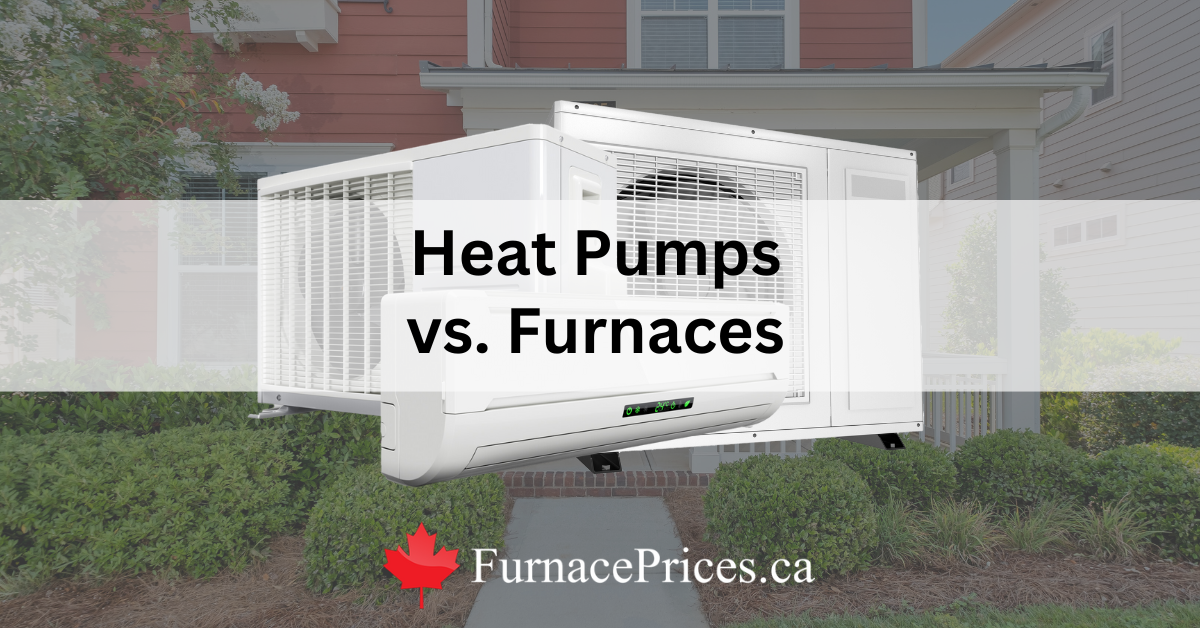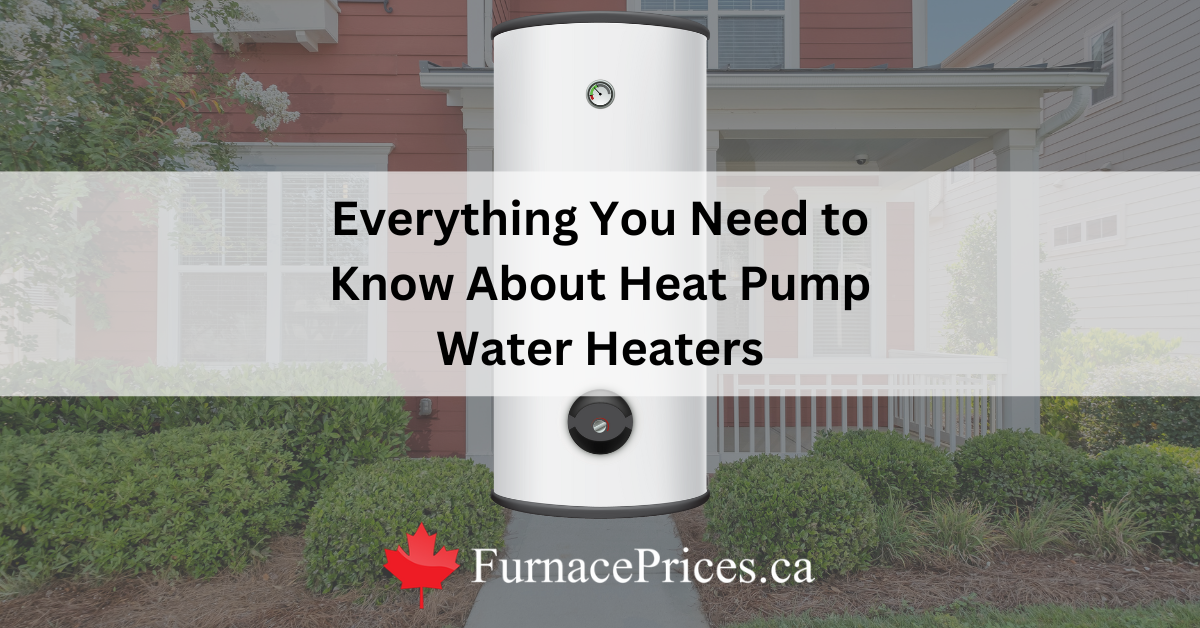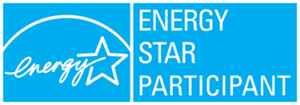Heat pumps have gained popularity for their energy-efficient and eco-friendly characteristics in heating and cooling buildings. They offer a versatile solution that not only keeps your home comfortable but can also reduce your energy bills.
However, as a homeowner, you might be wondering, “Are heat pumps worth it in Canada?”
In this article, we will explore the benefits and drawbacks of heat pumps in Canada, shedding light on the factors you will want to consider when thinking about this important decision.
Are Heat Pumps Worth it in Canada?
Canada is known for its harsh winters and varying climate conditions, which can make heating and cooling a home challenging and costly. So, are heat pumps worth it in Canada? The answer is a resounding “Yes,” and here’s why:
1. Heat Pumps Are Highly Efficient
One of the primary reasons why heat pumps are worth it in Canada is their exceptional energy efficiency.
Heat pumps work by transferring heat from one place to another, rather than generating heat by burning fuel, which makes them significantly more energy-efficient than traditional heating systems.
According to the U.S. Department of Energy, heat pumps can provide 3 to 4 times more heating energy than the electrical energy they consume, resulting in substantial energy savings.
This efficiency is especially valuable in Canada’s cold climate, where heating costs can be a significant part of your energy bills.
2. Long-Term Savings with Heat Pumps
While the upfront cost of purchasing and installing a heat pump may be higher compared to traditional heating systems, the long-term savings can be substantial.
The energy efficiency, reduced maintenance costs, and potential incentives and grants contribute to a strong financial case for choosing heat pumps in Canada. Over time, the savings on energy bills can offset the initial investment, making heat pumps a cost-effective choice.
3. Heat Pumps Can Heat As Well As Cool Your Home
Another key advantage of heat pumps is their ability to both heat and cool your home. In the summer, heat pumps can reverse their operation to act as air conditioners, effectively providing year-round comfort.
This dual functionality eliminates the need for separate heating and cooling systems, simplifying your home’s HVAC setup and potentially saving you money.
4. Cold Climate Heat Pumps Work In Canadian Winters
A common misconception is that heat pumps are only effective in mild or temperate climates.
However, advancements in technology have led to the development of cold climate heat pumps designed to work in extreme Canadian winter conditions and efficiently extract heat from the outdoor air even when temperatures drop significantly below freezing.
According to Natural Resources Canada, cold climate heat pumps can operate efficiently in temperatures as low as -25°C, making them suitable for most regions in Canada.
5. Heat Pumps Reduce Harmful Emissions By Not Using Gas Or Oil
One of the pressing issues in today’s world is climate change and environmental sustainability. Many Canadians rely on natural gas or fuel oil for heating their homes.
Heat pumps are a greener alternative to these conventional heating systems because they use electricity to transfer heat rather than burning natural gas or oil to create heat. This reduces greenhouse gas emissions that cause climate change.
In fact, a study published in the Journal of Cleaner Production found that heat pumps can reduce carbon emissions by up to 65% compared to traditional heating systems.
This also eliminates the need for a gas connection or fuel oil deliveries and associated expenses. With heat pumps, you’re not dependent on external factors that cause your fuel costs to fluctuate when turbulent world events disturb the energy markets and prices.
6. Heat Pumps Require Minimal Maintenance
Heat pumps are known for their low maintenance requirements. Traditional furnaces and boilers can be costly to maintain and may require regular servicing.
In contrast, heat pumps have fewer moving parts, reducing the risk of breakdowns. Regular check-ups and filter replacements are usually sufficient to keep them running smoothly. This means less hassle and lower maintenance costs for homeowners.
7. Heat Pumps Are Quiet
Another benefit of heat pumps is their quiet operation. Unlike some heating systems that produce noise and disturbances, heat pumps operate with minimal noise.
There’s no noise from the expansion and contraction of metal parts, and heat pumps can operate with fewer on/off cycles than the traditional furnace.
The outdoor unit can be placed where what little noise it produces doesn’t reach the interior of your home.
Get Quotes
How soon are you looking to buy?*



8. Heat Pump Retrofits Are Easy To Install
If you’re considering transitioning to a heat pump system, you’ll be pleased to know that retrofitting your existing HVAC setup is relatively straightforward.
While installing a brand-new HVAC system can be a disruptive project, heat pump retrofits are usually less invasive, making the transition to this energy-efficient technology more accessible.
9. Heat Pumps Qualify For The Canada Greener Homes Grant
The Canadian government recognizes the importance of energy-efficient home upgrades and offers incentives to homeowners looking to make their homes more environmentally friendly.
Under the Canada Greener Homes Grant program, you can receive financial assistance to support the installation of heat pumps and other energy-efficient improvements. This grant can help offset the initial cost of installing a heat pump, making the decision to switch to this technology even more appealing.
10. Pairing a Heat Pump with Solar Can Optimize Savings
Pairing a heat pump with a solar energy system can be a strategic move to optimize savings.
Solar panels can generate electricity that you can use to power your heat pump, reducing your dependence on the grid and potentially lowering your energy bills further. This combination of technologies offers a cost-effective solution for heating and cooling your home, as well as reducing greenhouse gas emissions.
11. Heat Pumps Do Not Require Ducts
If your home doesn’t have existing ductwork, installing a conventional forced-air heating system is likely to be costly and disruptive, if not impossible.
Heat pumps can easily be installed in an existing ducted system, but you can still install heat pumps if you don’t have ducts.
Ductless heat pump systems are available for homes without ducts, providing heating and cooling to selected rooms. These systems give you room-by-room control over temperature, too.
12. Year-Round Versatility.
Heat pumps offer versatility and year-round comfort.
They can efficiently provide cooling as well as heating, keeping your home comfortable in all seasons. This adaptability is especially valuable in Canada, where temperature extremes can vary significantly.
13. Heat Pumps Improve Air Quality
Heat pumps have a positive impact on indoor air quality.
Combustion-based heating systems produce dry heated air, which can be a problem in winter for families with respiratory issues. Heat pumps control the humidity to a comfortable level year-around.
Some heating systems can circulate dust into the air, but heat pumps have an efficient filtration system to take dust, allergens, hairs, etc. out of the air. So you’re breathing purified air.
Heat Pump Drawbacks
Despite their numerous benefits, it’s important to consider the potential drawbacks of installing a heat pump in a Canadian home. Although the advantages usually outweigh the disadvantages, you can find them discussed in this article.
Factors to Consider When Choosing a Heat Pump
If you’re considering a heat pump for your home, there are several factors you should take into account:
1. Your Current Heating Load
The size and heating load of your home will determine the type and capacity of the heat pump you need. It’s crucial to have a professional perform a heat load calculation to determine the appropriate heat pump size for your home.
2. Efficiency Ratings And Compressor Types
When choosing a heat pump, consider its efficiency ratings, such as the Heating Seasonal Performance Factor (HSPF) and Seasonal Energy Efficiency Ratio (SEER).
You should also understand the types of compressors used in heat pumps, as inverter-driven compressors are more energy-efficient and provide better comfort control.
3. Your Home’s Insulation And Ducting
Well-insulated homes are more energy-efficient and can make the most of a heat pump’s capabilities. Inadequate insulation or ducting and several other factors can lead to heat loss, reducing the system’s overall efficiency.
4. Your Budget
The cost of purchasing and installing a heat pump can vary widely depending on the type, brand, and model you choose. Consider your budget and explore financing options or available grants to make the transition more affordable.
Get Quotes
How soon are you looking to buy?*



Questions
As you consider the decision to invest in a heat pump for your home, you might have some questions and concerns. Let’s address some of the common ones that homeowners have:
What Are The Environmental Impacts Of Using A Heat Pump?
Heat pumps have a significantly lower environmental impact compared to traditional heating systems that rely on fossil fuels.
Heat pumps use electricity to transfer heat instead of burning fossil fuels to produce heat. They use much less electricity than electric baseboard heaters. So they reduce greenhouse gas emissions and contribute to a cleaner environment.
The reduction in carbon emissions and improved air quality are important environmental benefits you’ll get from your heat pump.
What Are The Common Myths And Misconceptions About Heat Pumps?
There are several misconceptions about heat pumps, including the belief that they are ineffective in cold climates and are noisy.
Modern cold-climate heat pumps are designed to operate efficiently in extremely cold conditions. Certain modifications to the basic system allow this without increasing the cost substantially.
Another misconception is that heat pumps are noisy. Not true. They operate quietly. The noisiest part of a heat pump system, which is not very loud, is located outside your house, where the noise will barely affect you.
Finally, some believe that heating with electricity is expensive. This might be true in some cases with very high electricity costs, but the energy efficiency of heat pumps can often lead to lower overall heating costs.
How Do Heat Pumps Compare To Other Heating And Cooling Systems?
Compared to other heating and cooling systems, heat pumps offer several advantages. They are more energy-efficient, provide both heating and cooling capabilities, and have lower maintenance requirements.
Traditional heating systems that rely on fossil fuels can produce emissions and contribute to air pollution, while heat pumps do not. They use much less electricity than electric baseboard heaters or space heaters.
Also, heat pumps are generally more efficient at cooling than air conditioners alone.
Do Heat Pumps Work In Cold Climates?
Yes, heat pumps can work in cold climates, provided you have a model that is designed for such conditions. Cold climate heat pumps have advanced technology that allows them to extract heat even from very cold outdoor air. These heat pumps are well-suited for Canadian winters and can provide efficient heating throughout the year.
Isn’t It Cheaper To Stick With Gas?
Sticking with natural gas may seem cheaper in the short term, even if it is cheaper than electricity. But in the long term, the cost of operating heat pumps is likely to be lower.
Natural gas prices can fluctuate, and the environmental impact of burning fossil fuels is a concern. Heat pumps offer long-term savings on maintenance. And they qualify for government grants and incentives, making them a cost-effective choice.
Are Heat Pumps Noisy?
Heat pumps are generally quiet in operation. The indoor unit, which circulates conditioned air, produces minimal noise, much less than traditional air conditioners or furnaces. Outdoor units may emit a slight humming sound, but it’s typically not disruptive to homeowners.
Isn’t Heating With Electricity Expensive?
While electricity rates can vary by region, heating with electricity through a heat pump can be cost-effective due to their high energy efficiency.
Heat pumps transfer heat instead of generating it, making them much more efficient than electric resistance heating. The long-term savings on energy bills and reduced maintenance costs can offset the initial investment, especially with government grants and other incentives.
What Size Heat Pump Do I Need?
The size of the heat pump you need depends on the size and heating load of your home. It’s essential to have a professional perform a heat load calculation to determine the appropriate size and capacity for your specific needs. Installing a properly sized heat pump ensures optimal performance and energy efficiency.
What Is The Major Disadvantage Of A Heat Pump System?
The major disadvantage of a heat pump system is its higher upfront cost. Purchasing and installing a heat pump can be more expensive compared to traditional heating systems. However, the long-term energy savings and reduced maintenance costs can offset this initial investment. But there are government grants and other incentives to help offset the initial cost.
Do I Still Need A Furnace With A Heat Pump?
In most cases, a heat pump can replace a traditional furnace for both heating and cooling. However, in extremely cold conditions, a backup heat source may be necessary to supplement the heat pump’s capacity.
This backup heat source is often a built-in electric resistance heater, which is less efficient but provides supplemental heat at the low end of the heat pump’s operating range. For the coldest climates, a furnace may need to be paired with the heat pump to form a hybrid system.
Can A Heat Pump Replace A Furnace In Canada?
A heat pump can replace a furnace in many parts of Canada, provided it is designed for the specific climate conditions. Cold climate heat pumps are well-suited for Canadian winters and can efficiently provide heating throughout the year.
When properly sized and installed, a heat pump can serve as the primary heating and cooling system for your home.
Conclusion
In the question of whether heat pumps are worth it in Canada, the answer is a resounding “yes.”
The numerous benefits of heat pumps, including their high efficiency, ability to provide both heating and cooling, improved comfort and air quality, and positive environmental impact, make them a valuable addition to Canadian homes.
Get Quotes
How soon are you looking to buy?*












